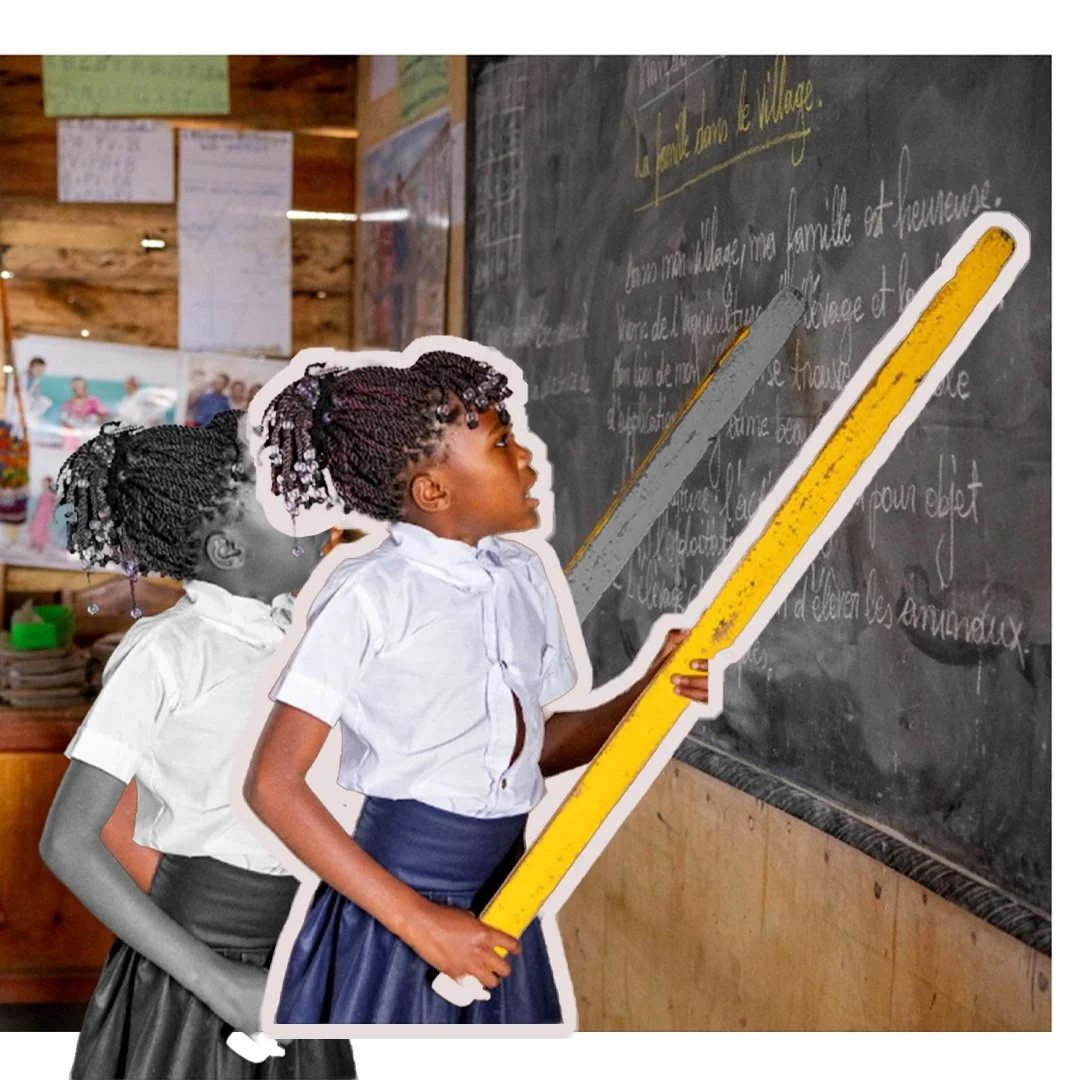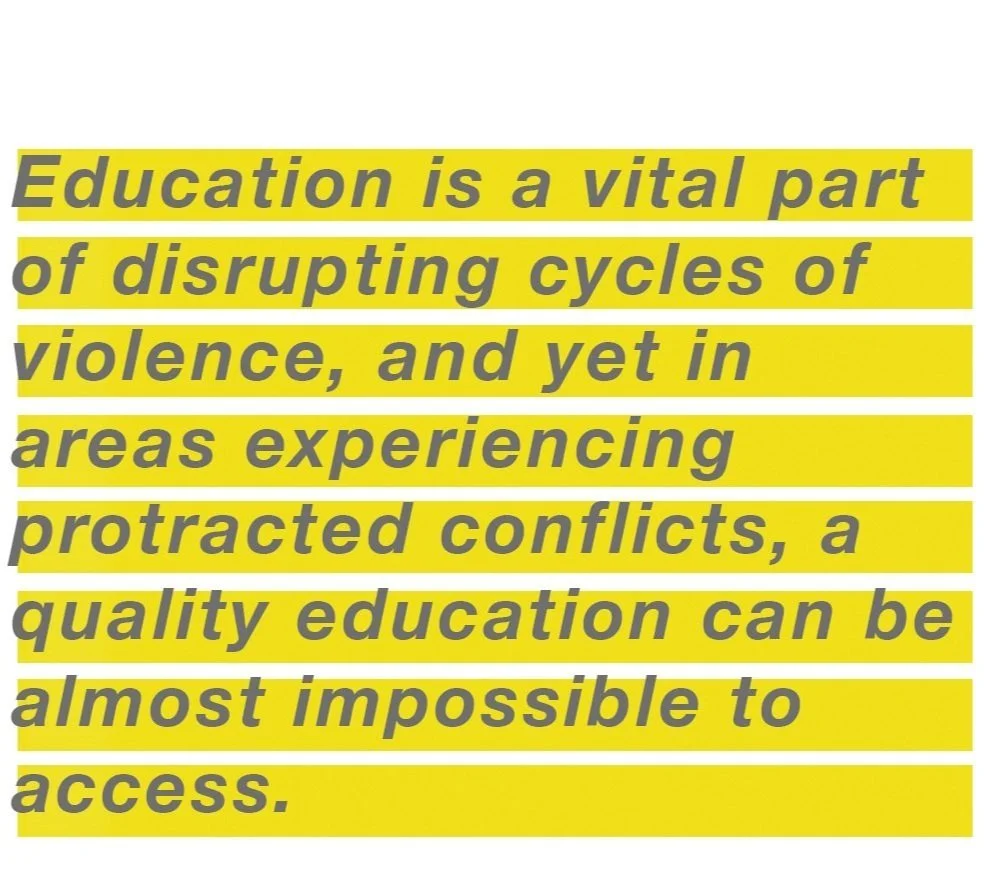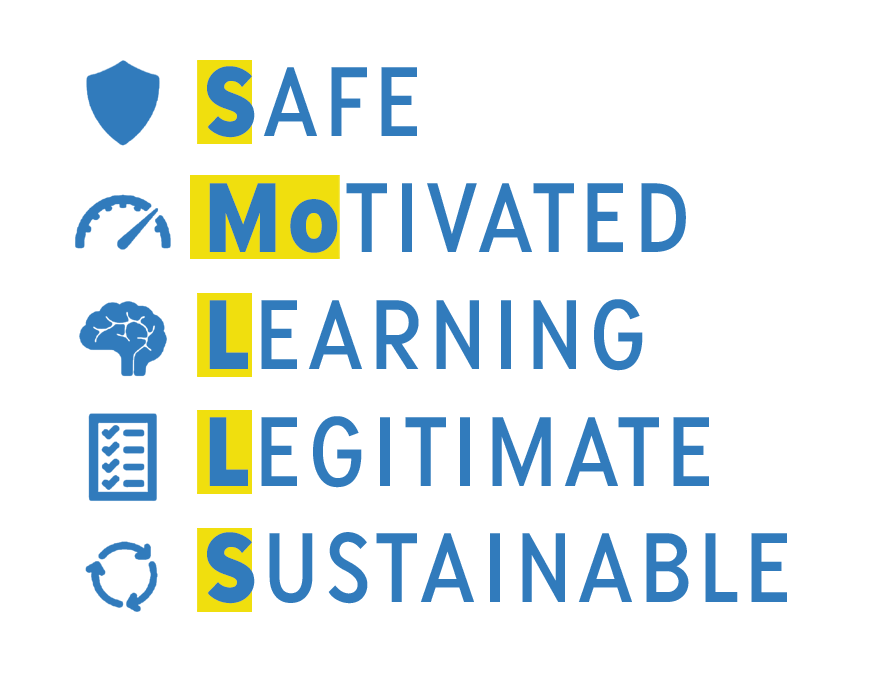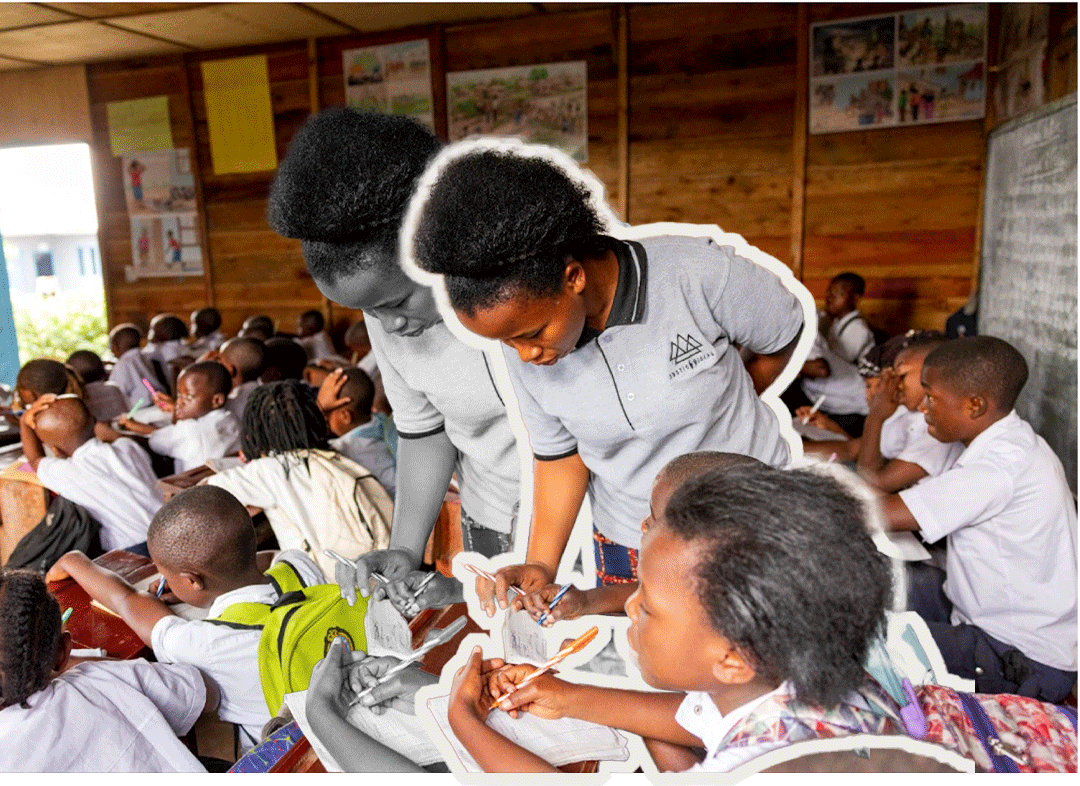SMoLLS FRAMEWORK
Why SMoLLS?
152 million children attend school in a protracted conflict setting globally and 127 million of these children have poor learning outcomes. Students in sub-Saharan Africa who attend school in conflict settings typically learn six times slower than even their peers who are experiencing other types of crises.
Justice Rising has been building and operating schools in conflict-affected areas of Eastern D.R. Congo since 2015.
We have built and operated 23 schools in the region, and now provide education for more than 4,000 children whose safety, and education, are frequently threatened by the decades-long conflict.
Despite these challenges and very low operating expenditures, our students continue to outperform national averages academically and teachers from across the region want to work for Justice Rising schools. Our success has come from pedagogical methods and school management practices that are grounded in research and refined for the context of protracted conflict and crisis. Justice Rising has identified and refined our practices into a series of SMoLL Steps with the goal to drive quality schooling in protracted conflict settings.
WHAT IS SMoLLS?
SMoLL Steps is a framework for school management that is created to guide school leaders and school network operators through the tasks required to operate schools in a protracted crisis setting, while always keeping their student’s well-being as the foremost priority. SMoLLS prioritizes addressing the under-supported issue of schooling quality, offering flexible guidance without being overly prescriptive.
This framework is designed to be manageable, unintimidating, and realistic, acknowledging that not everything can always be done at once, but that even in times of crisis, a school can stay focused on maximizing learning outcomes for children. SMoLLS is innovative and usable in various settings and circumstances. By taking a holistic approach, SMoLL Steps also recognizes school leaders, teachers, parents, governments, and local education clusters as key stakeholders and beneficiaries of quality schooling.
SMoLLS is an acronym for the priorities that must be at the forefront of any school activity. The approach focuses on an overarching outcome that ensures that students are Safe, Motivated, and Learning, in schools that are Legitimate and Sustainable.
SMoLL Steps serves as a reliable anchor for schools in tumultuous environments, providing a north star without overwhelming demands.
HOW WAS SMoLLS DEVELOPED?
The proposed actions of SMoLL Steps are all grounded in the best existing evidence from the most relevant fields (behavioral science, school management, education in emergencies, etc.).
Justice Rising developed the SMoLL Steps using:
Human-centered design - placing human needs, especially safety, front and center
Evidence-based approaches - applying behavioral science to both the intervention and its implementation
Locally appropriate considerations - harnessing familiar/traditional practices whenever possible to both ease implementation and show respect
Holistic perspectives of schooling - remembering that there is more to school than academic performance
Emphasis on Community - knowing that teachers, for example, are beneficiaries as well as key actors in implementation
Most of the components of the SMoLL Steps framework have been implemented and tested within Justice Rising schools in the DR Congo, and we are confident that any and all of these steps will yield positive results within other schools.
HOW DOES SMoLLS WORK?
SMoLL Steps assists stakeholders in auditing their current practices and identifying areas for improvement. They are then guided in developing a tailored school network improvement plan to translate audit results into actionable steps.
The SMoLL Steps framework presents specific and measured actions for school operators, school leaders and teachers as the agents of change to ensure that they are meeting these priorities as best as they can in challenging environments.
School operators should feel empowered to support school leaders, engage with different stakeholders and manage operation costs effectively.
School leaders are to take manageable steps to create a culture of child protection in schools, make data-driven decisions and support their teachers with quality professional development.
Teachers are to build positive relationships with students, maintain high expectations and teach more efficiently and effectively as a result of the effective implementation of SMoLL Steps.
The below serves as guidelines to inform and structure these priorities and actions:
1. Input: As a starting point, Justice Rising works with school networks (or single proprietor schools) to co-audit their existing activities against the SMoLLS framework. Based on the results of the co-audit, schools work with Justice Rising to develop a School Network Improvement Plan (SNIP) that aligns with the needs of that particular school network/school and exists in a format already familiar to them. This SNIP can also draw upon the SMoLL Steps tools that Justice Rising provides to help see the SNIP through.
2. Output: School operators can see and understand the immediate actions required for them to begin making their school more SMoLLS-aligned and support their school leaders to do the same. Justice Rising may support school operators and leaders through this next implementation phase through the co-facilitation of teacher professional development.
3. Intermediate Outcomes: Based on the small and manageable actions taken by school operators, school leaders, and teachers, the school network (or single school) will enable its students, girls and boys, to be more safe, motivated, and learning, and do so in a way that is legitimate and sustainable.
4. Final Outcomes: While we see each of the five intermediate outcomes of SMoLLS as being goal-worthy in and of themselves, a school that is collectively meeting the requirements of all five domains of the SMoLLS framework would be providing high-quality schooling to students in protracted crises.
Assumption A: Schools will be able to execute the actions recommended to them in the SNIP.
Response: Unlike other action plans, the SNIP is codesigned with the school operator at every step of the way, with a particular eye on what the next step is, and what they can realistically accomplish. Thus, the feasibility of implementation will depend on school operators and leaders having a realistic and honest assessment of their needs and abilities.
Assumption B: The five domains of SMoLLS are sufficient to produce better quality schooling in almost any context.
Response: While the actions outlined in SMoLLS are not claimed to be exhaustive, we are making an informed assumption that they are comprehensive and that while not able to solve every challenge that a school may run into, they are sufficient for driving improvement in a meaningful way.
What is next for SMoLLS?
Justice Rising is continuing with the Global Development Incubator (GDI) to bring the SMoLL Steps package to new partners, helping more students and schools facing similar challenges. While the SMoLLS approach has proven effective in eastern DR Congo, Justice Rising is looking to expand its positive impact to new communities in new geographies.
We are engaged in conversations with multiple education-focused partner organizations in similar protracted conflicts.
We will pilot the SMoLLS approach with them in their schools to better understand the adaptations necessary.
We are bringing in new research partners to advise on data collection and validation strategies
We are currently looking for funding partners who are interested in furthering this work, and understand how the SMoLLS approach may be able to inform other education programming with their portfolios.
No child should be burdened by war and violence. At Justice Rising, we are committed to working in the areas hardest hit by war to build schools and empower communities. Educating children living in war zones equips them to break the cycle of war and build a culture of peace. Together we can transform futures by allowing children and communities to grow, learn, and thrive in a peaceful environment and the SMoLLS Framework is a powerful tool, stepping in the right direction to enable just that. Why not partner with us on this exciting journey?



